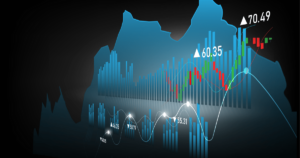Introduction:
As traders who have had the opportunity to trade with OneUp Trader and FTMO Prop Trading Firm, we at WhichFunded understand the importance of making informed decisions when choosing a funded trading program. In this comparison blog post, we will delve into the key features, evaluation processes, payout systems, trading platforms, and overall worthiness of these two renowned firms.
| Prop Firm Details | FTMO | OneUp Trader |
| Year Founded | 2014 | 2017 |
| Maximum Balance | $2,000,000 | $250,000 |
| Tradeable Assets | Forex Indices Metals Commodities Stocks Crypto |
Equity Futures Forex Futures Agricultural Futures Energy Futures Interest Rate Futures Metals Futures |
| Challenge Type | Two Step Evaluation | One-Step Evaluation |
| Trading Platforms | MT4 MT5 cTrader |
NinjaTrader Rithmic InsideEdge Trader Volfix ATAS Medved Trader Quantower TradeNavigator SierraChart Photon MotiveWave RInvestor Bookmap X-Ray Jigsaw Daytradr |
| Trading Hours | Holding Overnight Holding Over Weekend |
❌ |
| Copy Trading | ✅ | ✅ |
| News Trading | ✅ | ❌ |
| EAs | ✅ | ✅ |
| Trust Pilot Rating⭐ | 4.9 / 5.0 | 4.7 / 5.0 |
| Trust Pilot Reviews | 4,408 | 419 |
| Payment Types | Wire Transfer Skrill Crypto Credit Card Google Pay Nuvei Checkout.com Confirmo |
Wire Transfer Crypto |
Evaluation Process:
Both OneUp Trader and FTMO offer evaluation processes to assess traders’ skills and discipline. OneUp Trader stands out with its simple and attainable 1-Step Evaluation process, providing clear targets for traders to showcase their abilities. On the other hand, FTMO follows a 2-step Evaluation Course, consisting of the FTMO Challenge and Verification stages, which are designed to identify trading talents. While OneUp Trader’s evaluation process may be more straightforward, FTMO’s process offers a rigorous assessment.
Account Options:
OneUp Trader offers a range of funded trading accounts, allowing traders to choose the account size that aligns with their trading goals. Traders can select an account size ranging from $25,000 to $250,000. In contrast, FTMO provides traders with the opportunity to manage an FTMO Account with a balance of up to $400,000 upon successful completion of their evaluation course. FTMO offers a larger potential account balance, which may be appealing to traders aiming for higher capital.
Payout System:
Both OneUp Trader and FTMO have competitive profit splits. OneUp Trader provides a generous profit split, allowing traders to retain a significant portion of their profits. FTMO, by default, offers an 80:20 profit split for traders. However, FTMO traders have the opportunity to increase their account balance by 25% every 4 months through the Scaling Plan, which also changes the payout ratio to an impressive 90:10. Traders can request payouts on-demand with both firms.
Trading Platforms and Instruments:
OneUp Trader offers a feature-rich trading platform with a complimentary NinjaTrader license and free market data/Level 2 data. Traders have access to advanced tools and indicators to enhance their trading decisions. FTMO supports popular trading platforms such as MT4, MT5, and cTrader, providing traders with a familiar trading environment. Both firms offer a wide range of trading instruments, including Forex, Indices, Crypto, and Commodities.
Additional Benefits:
OneUp Trader emphasizes its outstanding customer service, with 24/7 availability through phone, live chat, and email. Traders can rely on prompt and reliable support from friendly and knowledgeable agents. FTMO provides additional benefits such as custom trading apps for discipline, journaling, and market analysis. Traders also have access to educational resources through the FTMO Trading Academy, including tutorials, webinars, and collaborations with experienced traders and mentors.
Conclusion:
In conclusion, both OneUp Trader and FTMO offer aspiring traders the opportunity to showcase their skills and earn funded trading accounts. OneUp Trader stands out with its simple evaluation process, flexible account options, and outstanding customer service. On the other hand, FTMO offers a rigorous evaluation course, a larger potential account balance, and additional benefits such as custom trading apps and educational resources. Ultimately, the choice between these firms depends on individual preferences, risk tolerance, and trading goals. We recommend carefully considering the features and benefits of each firm to make an informed decision.








